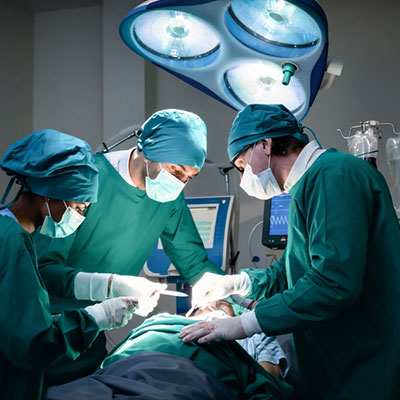A varicocele is an enlargement of the veins within the loose bag of skin that holds your testicles (scrotum). It's essentially a varicose vein of the scrotum. Varicoceles are common, affecting about 15% of males, and are more frequently found on the left side. They are caused by incompetent valves in the veins, which prevent blood from flowing back towards the heart, leading to pooling and enlargement. While many varicoceles are asymptomatic, they can sometimes cause discomfort, a dragging sensation, or pain, particularly after standing or physical activity. More significantly, varicoceles are a leading cause of male infertility needing Fertility Treatment in Karimnagar because the increased temperature in the scrotum due to blood pooling can impair sperm production and function. Diagnosis is typically made through a physical examination and ultrasound. Treatment is not always necessary, but if the varicocele is causing pain, affecting fertility, or causing significant testicular atrophy, surgical or non-surgical procedures can be performed to block the affected veins.
Varicocele often doesn't cause any symptoms, and many men live with it without knowing. When symptoms do occur, they can include a dull ache or discomfort in the scrotum, which may worsen with standing or physical exertion and improve when lying down. As per Best Infertility Doctor in Karimnagar, Dr. Nayani Enjamoori, some individuals may notice a feeling of heaviness in the testicle. In some cases, a varicocele is visible as a swollen vein or collection of veins in the scrotum, often described as looking like a "bag of worms." The size and appearance of the varicocele can vary. While less common, a varicocele can sometimes lead to infertility due to its effect on sperm production and quality.

Treatment:
Treatment for varicocele is often not necessary, especially if it is not causing pain, infertility, or testicular atrophy. However, if treatment is required, options include pain relief through over-the-counter medications like ibuprofen, or surgical procedures. Surgical options by Male Infertility Specialists in Karimnagar, at leading fertility centre, 9e Fertility include open surgery, laparoscopic surgery, and percutaneous embolization. Open surgery involves a small incision in the groin or abdomen to tie off the affected veins. Laparoscopic surgery uses small incisions and a camera to perform the same procedure. Percutaneous embolization is a less invasive option where a catheter is inserted into a vein, and coils or a sclerosant are used to block the abnormal veins. The choice of treatment depends on the severity of the varicocele, the patient's symptoms, and their overall health.
What happens if left untreated?
If a varicocele is left untreated, it can potentially lead to several complications. The most common issue is continued or worsening pain and discomfort in the scrotum. This pain can range from a dull ache to a sharp sensation and may be exacerbated by prolonged standing or physical activity. Another significant concern is the potential impact on fertility. Varicoceles can raise the temperature in the scrotum, which can negatively affect sperm production and quality, potentially leading to a lower sperm count, decreased sperm motility, and abnormal sperm morphology, thus making it harder to conceive. In some cases, varicoceles can also contribute to testicular atrophy, which is the shrinking of the affected testicle. While not always a severe issue, it can further impact hormone production and sperm development. The severity of these complications varies greatly from person to person, and not everyone with an untreated varicocele will experience all or even any of them. However, due to the potential for pain, fertility issues, and testicular atrophy, seeking medical evaluation and discussing treatment options is generally recommended.
